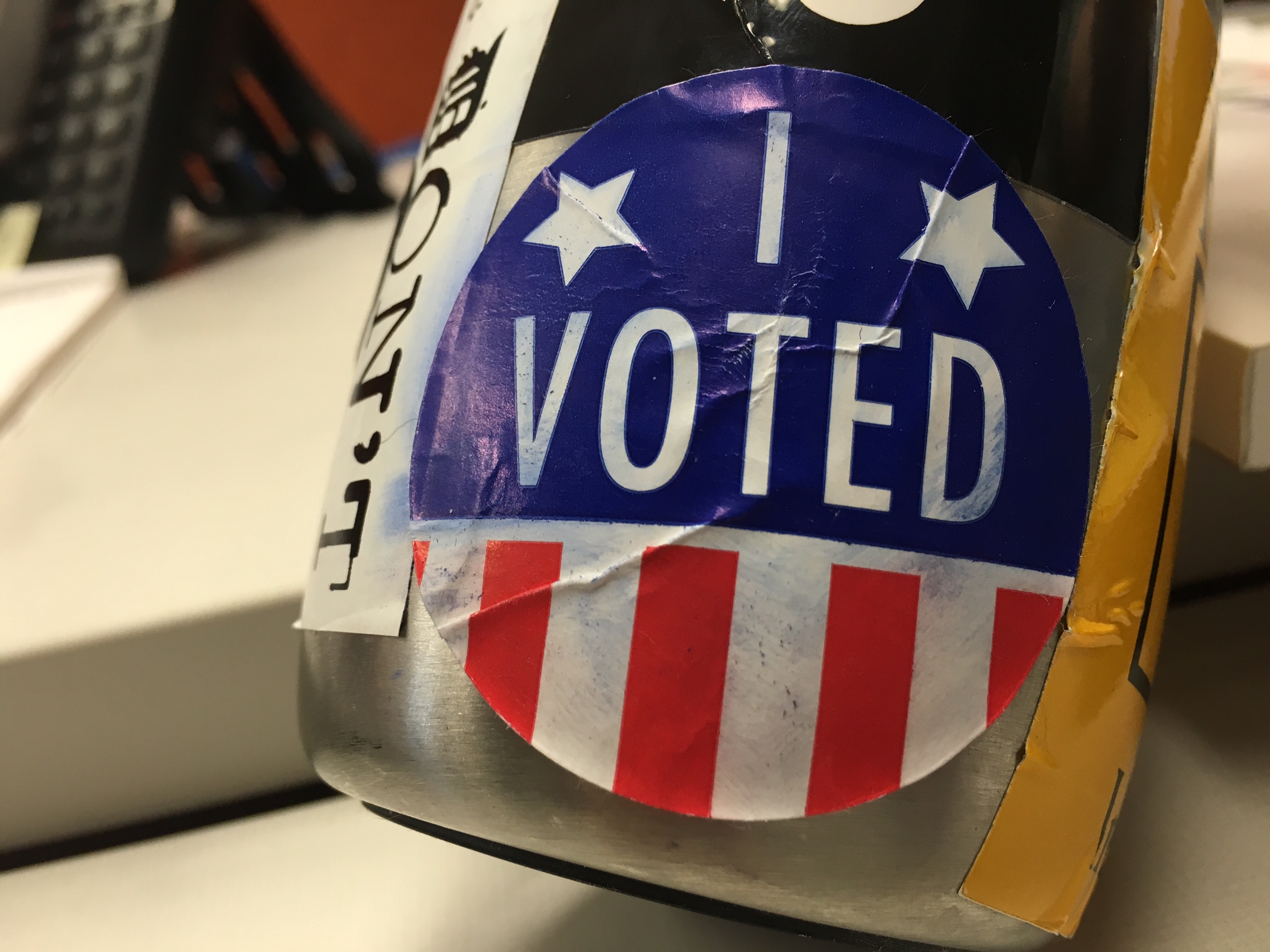MichMash: Campaigns Try to Reach Voters Without Touching Them During Coronavirus Pandemic
The health crisis is fundamentally changing the way campaigns operate in Michigan and nationwide.

With social distancing necessary to curb the spread of COVID-19, candidates have to get creative with reaching voters.
“They can literally target a particular message to you and advertising on your Facebook page. So that was a trend we’re already seeing happen. And it’s speeding up big time.” – John Sellek, founder and CEO of Harbor Strategic Public Affairs.
The coronavirus pandemic is fundamentally changing the way many candidates campaign ahead of the August and November elections. While the days of shaking hands and kissing babies are gone for now, elections are not. Campaigning during a pandemic is already proving especially difficult for local elections where name recognition isn’t very high.
Subscribe to MichMash with hosts Jake Neher and Cheyna Roth on iTunes, Spotify, Google Podcasts, NPR One or wherever you get your podcasts.
Several trends are emerging, including targeted social media ads.
“Good digital advertising companies can try to match you up to say, your Facebook page. And then they can literally target a particular message to you and advertising on your Facebook page,” said John Sellek, founder and CEO of Harbor Strategic Public Affairs.
“So that was a trend we’re already seeing happen. And it’s speeding up big time.”
That kind of targeted, specific advertising requires money and resources; two things that can be in short supply in down-ballot campaigns. So campaigns still have to try and figure out how to reach people the old fashioned way — going door-to-door.
“They are realizing they need to get to the doors. And they are finding ways to do it, both as Republicans and Democrats.” – John Sellek, founder and CEO of Harbor Strategic Public Affairs.
The question each campaign has to figure out, Sellek said, is how to go about doing this in a way that is safe for voters and for the volunteers that handle a majority of the door knocking.
He said for the nation-wide elections, it’s very polarizing, with Republican President Donald Trump supporters masking up and going door-to-door while Democrats in the Joe Biden campaign have said that they will not be doing door-to-door campaigns, Sellek said.
But it’s a different story for smaller races.
“While we may be presented with this sort of black and white picture between going door-to-door and not going door to door,” he said.
“What we see when we look at the candidates closer to the ground like county wide office, state representatives, and so forth is it doesn’t matter what party you’re in. They are realizing they need to get to the doors. And they are finding ways to do it, both as Republicans and Democrats,” he said.
“This election will have been essentially like a battleground of experimentation to see where politics goes going forward.” – John Sellek, founder and CEO of Harbor Strategic Public Affairs.
This gets tricky, however, because the decision to wear a mask or not has become political.
There is also the issue of the likely increase in absentee ballots this election cycle as more are being sent out in the state, and fewer people feel safe heading to the polls. This can increase a candidate’s desire to go door-to-door, says Sellek.
“It becomes more tempting than ever to go to the door and be able to make that connection with somebody there and say, ‘Hey, I understand that you have your absentee ballot here… If you’re comfortable with me, I sure hope you wouldn’t mind going inside and just marking my name down,‘” he said.
“We’re at the best opportunity for that kind of reaction to happen… because of how many ballots are out there,” Sellek added.
Whether candidates find ways to increase their targeted ads, send more information to voters in the mail, or trek out to campaign door-to-door, Sellek said it’s all an experiment that is likely to have a lasting impact.
“When we get into next year, everyone’s going to look back and say, ‘Okay, how did this work?‘” Sellek said. “This election will have been essentially like a battleground of experimentation to see where politics goes going forward.”
Trusted, accurate, up-to-date
WDET is here to keep you informed on essential information, news and resources related to COVID-19.
This is a stressful, insecure time for many. So it’s more important than ever for you, our listeners and readers, who are able to donate to keep supporting WDET’s mission. Please make a gift today.
